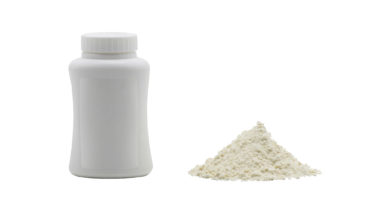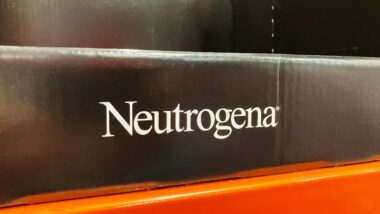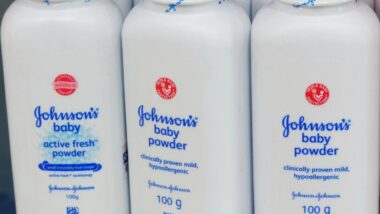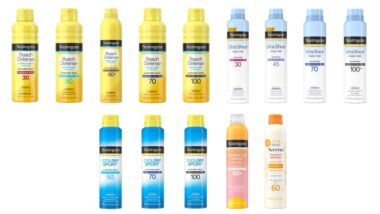Top Class Actions’s website and social media posts use affiliate links. If you make a purchase using such links, we may receive a commission, but it will not result in any additional charges to you. Please review our Affiliate Link Disclosure for more information.
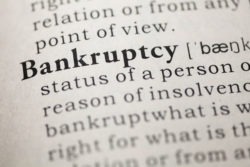
Alameda County Superior Court Judge Brad Seligman announced that Imerys would be dropped as a defendant during proceedings for the talc cancer lawsuit. Judge Seligman asked jurors to not speculate about why the company was dropped from the case as they consider the facts and arguments presented.
Despite Judge Seligman’s efforts, Imerys has made headlines over its bankruptcy filing. Bloomberg reported that Imerys filed for bankruptcy protection “in an effort to end nearly a decade’s worth of lawsuits claiming its product causes cancer.”
Imerys claimed that they could not handle the costs of fighting the many lawsuits that had been filed against them over claims that their main product contained asbestos. The asbestos allegedly present in the talc could cause cancer, and many users of the product claim it caused them to develop cancer.
Bloomberg goes on to note that Imerys has faced over 14,000 claims over this issue in the U.S. alone. As a result, the company claims that they are $100 million in debt from legal costs associated with the asbestos cancer issue.
Many of these asbestos lawsuits have been brought forward by women who claim that Imerys talc caused them to develop ovarian cancer. A smaller number of people claim that they developed mesothelioma in connection with their use of the talc.
In the talc cancer lawsuit from which Imerys was recently dropped, plaintiff Teresa L. claims that Imerys and the multiple mining companies that were once separate and now owned by Imerys knew that there was asbestos in talc for decades. She claims that Imerys and the other companies also knew or should have known that asbestos posed a danger to human health. Asbestos and talc are often found together in nature, and the asbestos can contaminate the talc.
She then goes on to claim that the companies failed to warn consumers that asbestos may be in the talc and that therefore it could be dangerous, and continued to market and sell the talc as if it were safe and effective. Allegedly, Imerys and the other companies could have replaced talc in their products for cornstarch, which is allegedly less toxic.
The talc cancer lawsuit first went to trial on Jan. 7, and is anticipated to go to the jury in early March.
After Judge Seligman announced that Imerys was dropped from the trial, there was no more mention made of the company, and focus turned to Johnson & Johnson. The company is accused of deceiving customers about the risks associated with talc, and Teresa claims the company knew of the presence of asbestos in talc and did not tell consumers.
Of the talc lawsuit, Bloomberg cites Carl Tobias, product-liability law professor at the University of Richmond in Virginia. Tobias said that the elimination of Imerys from the cancer lawsuit “really puts J&J more in the crosshairs for all of these cases.” As questions of Johnson & Johnson’s knowledge of the issue continue to come to light, the Department of Justice and the Securities and Exchange Commission have begun to investigate the issue.
Lawyers for Johnson & Johnson then questioned the validity of the assessment of talc presented by Teresa’s expert, material scientist and electron microscopist William Longo. According to Longo, he found asbestos in 61 percent of talc samples he tested. Lawyers for Johnson & Johnson then asked him if the asbestos could have entered the talc not during the manufacturing and packaging process but after.
Longo did say that the small holes in the sample bottles were indeed big enough to let asbestos fall through, and admitted that he did not know where each sample had been before he received them.
J&J’s lawyers used this ambiguity to suggest that perhaps the asbestos that Longo said he found entered into the talc not as a result of Johnson & Johnson’s handling of the product or contamination that happened during the mining, but because of contamination after the fact.
The Talc Cancer Lawsuit is Case No. RG17882401, in the Superior Court of the State of California, County of Alameda.
Do YOU have a legal claim? Fill out the form on this page now for a free, immediate, and confidential case evaluation. The attorneys who work with Top Class Actions will contact you if you qualify to let you know if an individual lawsuit or class action lawsuit is best for you. [In general, baby powder cancer lawsuits are filed individually by each plaintiff and are not class actions.] Hurry — statutes of limitations may apply.
ATTORNEY ADVERTISING
Top Class Actions is a Proud Member of the American Bar Association
LEGAL INFORMATION IS NOT LEGAL ADVICE
Top Class Actions Legal Statement
©2008 – 2024 Top Class Actions® LLC
Various Trademarks held by their respective owners
This website is not intended for viewing or usage by European Union citizens.
Get Help – It’s Free
Join a Free Baby Powder Cancer Class Action Lawsuit Investigation
If you used Johnson’s Baby Powder, Shower to Shower, or another talcum powder product and were diagnosed with ovarian cancer, you may have a legal claim. Family members of loved ones who died of ovarian cancer can also join. Submit your information now for a free case evaluation.
An attorney will contact you if you qualify to discuss the details of your potential case at no charge to you.
PLEASE NOTE: If you want to participate in this investigation, it is imperative that you reply to the law firm if they call or email you. Failing to do so may result in you not getting signed up as a client or getting you dropped as a client.

